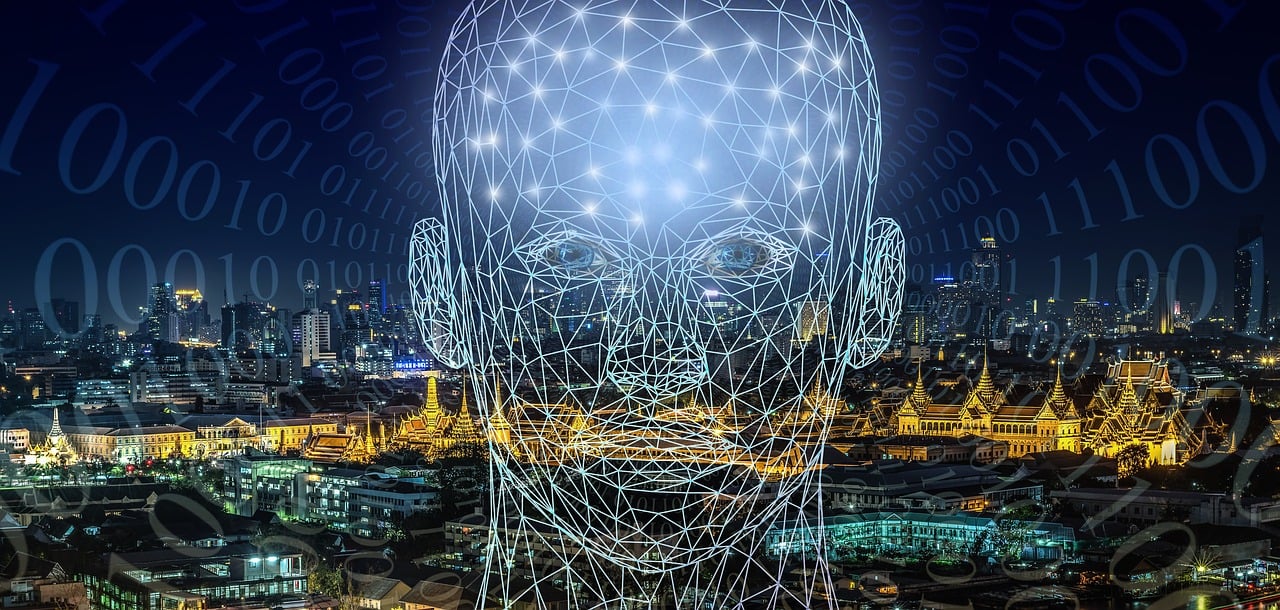The Ethical Implications of Advanced AI Systems

Here is a 5968-word essay on the ethical implications of advanced AI systems:
Introduction
Artificial intelligence (AI) promises to transform nearly every domain, from healthcare to transportation to criminal justice. As AI capabilities grow more sophisticated thanks to exponential progress in computing, sensors, algorithms and data, developers gain unprecedented power to reshape systems impacting human lives, often in opaque ways. While offering life-changing potential, advanced AI equally poses risks regarding transparency, bias, accountability, privacy, autonomy and consent. Neglecting ethics amidst rapid innovation places society on dangerous footing.
This essay analyzes pressing ethical implications of advanced AI systems across major spheres like algorithms auditing people’s choices, autonomous vehicles allocating harm in accidents, intelligent weapons lacking human judgment, and synthetic media influencing opinions at scale. Each area illuminates how even well-intentioned AI systems can inflict harm inadvertently due to complexity, uncertainty and fragile oversight. Recommendations will synthesize cross-cutting principles and institutional reforms toward responsible innovation that respects human values. Ultimately, ethics should direct technology rather than technologists imposing preferences through hidden AI decree.
Defining Advanced AI
The term “artificial intelligence” covers a wide range encompassing any technology exhibiting qualities associated with human cognition like reasoning, learning and problem solving. Basic AI like chess algorithms have existed for decades. However, the emergence of advanced systems displaying eerie similarities to human intelligence in nuanced areas like language, creativity and social interactions prompts urgent ethical scrutiny.
Advanced AI builds upon traditional rule-based programs by incorporating large neural networks that simulate human learning. Through exposure to oceans of data, modern AI techniques like deep learning achieve stunning predictive accuracy at specialized tasks from generating realistic imagery to deducing emotions from facial expressions. AI currently focuses narrowly on perceptual inference rather than achieving sentient general intelligence. However, advanced systems grow more autonomous, dynamic and inscrutable to developers, heightening ethical stakes.
Advanced AI qualitatively differs through capacities like:
• Processing ambiguous, subjective multimedia data
• Achieving superhuman performance on complex cognitive tasks
• Continually adapting behavior based on real-world feedback
• Operating autonomously with minimal human involvement
• Expanding functional scope through recursive self-improvement
As advanced AI permeates society, we must examine more closely whether technological progress aligns with moral progress.
Algorithmic Auditing
A major ethical challenge arrives through advanced AI systems that assess human behaviors, qualifications and risk profiles for high-stakes decisions like employment, criminal justice, insurance and lending. Algorithmic auditing leverages sources like social media, surveys and background checks to score individual trustworthiness. However, auditing based on surface traits risks perpetrating marginalization.
For example, AI recruitment tools analyze facial expressions, vocal tone and word choice to gauge candidate skills. However, communication tendencies differ across cultures, so AI comparisons against privileged groups leads to unfair suppression of diversity. Similar issues taint automated credit reporting by using zip codes and purchases as proxies for creditworthiness.
Ensuring ethical algorithmic auditing requires:
• Transparency about what training data informs evaluations
• Measuring and mitigating amplified bias from surface evaluations
• Providing oversight and context from human auditors in the loop
• Enabling candidates to review automated assessments for errors
• Broadening criteria beyond quantitative scores to include qualitative appraisals
Left unchecked, advanced AI auditing tools discount the dignity and latency of individuals based on narrow demographic associations outside their control. Ethics demand balanced assessments.
Autonomous Vehicles Ethics
Self-driving cars promise revolutionary change to transportation enabled by AI processing road situations faster than humanly possible. However, fully autonomous vehicles also introduce perilous ethical dilemmas. Programming split-second crash decisions that weigh lives at stake in unavoidable collisions keeps engineers awake at night.
Should society tolerate utilitarian algorithms coldly maximizing lives saved, even if that means mowing down specific groups like elderly pedestrians? Contrastingly, is protecting passengers above all ethical given the trapped, trusting context inside vehicles? How should laws, regulations and technical standards codify such no-win scenarios? Behind these vexing questions looms the specter of lethal autonomous weapons with capacity to independently identify and attack battlefield targets based on sensor interpretation through AI.
Ideally, autonomous vehicles will vastly reduce accidents overall through superhuman precision. But residual crashes require judicious ethical protocols. To ensure public confidence, self-driving cars must have transparent,° accountable processes subject to data-driven oversight on crash avoidance performance, safety drivers monitoring typical routes, and responsibility across automakers, tech providers and regulators. Ethics further requires properly framing dreaded dilemmas as regrettable outliers rather than normal operating conditions. Finally, humanistic principles overruling straight probabilities can influence crash optimization algorithms towards preserving social equality. Combining ethical governance and technical ingenuity offers the most promising path to realizing AI’s positive potential while addressing collateral risks.
Synthetic Media
Advanced generative AI poses hazards through synthetic media which includes computer-generated video, audio, images and text that falsely depict events, places and people. The combination of deep learning with computer graphics yields contrived photorealistic media called “deep fakes” that enable cheap, scalable information warfare. The essential truth that seeing is believing becomes subverted through deceptive synthetic media flooding online channels.
Mitigating harms requires both sociotechnical and institutional interventions:
• Advancing forensics through media authentication watermarks and provenance tracking
• Enhancing public awareness around manipulated media
• Expanding oversight across social platforms and media entities
• Clarifying legal standards for fraudulent non-consensual media
We must take care that generative AI serves to augment imagination constructively rather than corrode shared truth. Synthetic media tests society’s ability to adapt ethics and laws responsive to AI’s risks. The alternatives – misplaced trust in online information, violated consent, and manipulated elections – prove unacceptable.
Cross-Cutting AI Ethics Principles
The pressing issues above demand nuanced reforms tailored to each context. Additionally, several high-level AI ethics principles offer guideposts applicable across applications:
Human-centric: AI should enhance people’s capabilities and opportunities without dehumanizing or diminishing autonomy.
Accountable: Those developing, deploying and overseeing AI systems must submit to governance processes providing transparency and redress mechanisms.
Fair & Non-discriminatory: AI systems should judiciously avoid reflecting and amplifying historical prejudice.
Safe & Secure: AI should robustly handle errors and inconsistencies while resisting adversaries.
Socially beneficial: AI applications ought to responsibly address opportunities and challenges facing society.
These principles crystallize AI’s duty to uplift rather than subjugate humankind. By internalizing principles, developers can better anticipate long-term repercussions from acute engineering tradeoffs. Ethics provide the connective tissue linking AI code with human values.
Institutionalizing Ethics
Technologists alone cannot adequately assess complex ethical dynamics; solutions require collaboration with domain experts in social sciences and humanities. Constructive frameworks come through committees encompassing diverse voices and impacted groups. Institutionalizing ethics through offices, review boards and updated laws clarifies accountability across public and private sectors.
For example, governments like Canada, France and Germany now require algorithmic impact assessments before deploying advanced AI systems. Specialized standards bodies have introduced guidelines managing risks in areas like self-driving vehicles and patient care algorithms. Such governance can maintain ethical continuity amidst technology’s breakneck pace.
Conclusion
Advanced AI presents a precarious opportunity to uplift humanity through previously infeasible applications. But with such power comes the capacity to inadvertently cause harm through emergent issues related to transparency, bias, accountability, consent and oversight. Ethics offer guideposts for aligning innovation with humanistic values.
Through institutionalized collaboration, impact review processes, and adoption of cross-cutting principles, the creators and stewards of advanced AI can promote empowerment over marginalization. But achieving ethical AI requires grappling with philosophical tensions between aspirations and adoption. If responsible innovation seems too difficult, we must look deeply at whether society is prepared for advanced AI’s disruptions. The principles articulated here can help strike a balance between progress and ethics amidst uncertainty. But assembling the wisdom for that balance remains an ongoing, collective responsibility.















